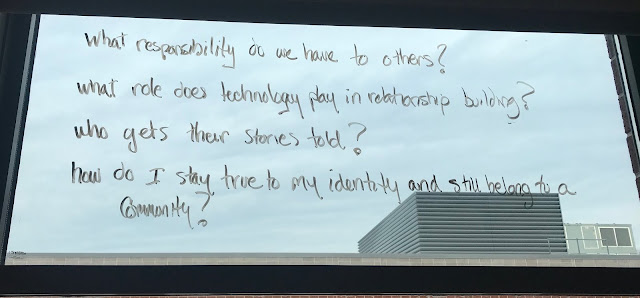And this one from Somaly Mam's The Road of Lost Innocence
'Children Of Blood And Bone' Is A Feast For Hungry Readers
Zélie was born a maji, a person meant to wield the magic of the gods for the good of the people of Orïsha. But when she was a child, the King of Orïsha ordered a raid that wiped out most of the maji, including her mother, and subjugated those who were left. Marked by their white hair and devoid of their powers, maji and their families live in fear.
Amari and her brother Inan grew up in the luxury of the royal palace, far away from the suffering of the maji. The King has raised his children to be cold and to put the good of Orïsha before themselves, at the expense of kindness or compassion. When a cruel act forces Amari to reassess what she has always accepted as truth, she flees the palace with a scroll that may hold the power to restore magic to Orïsha.
Zélie and Amari become unlikely allies and journey across Orïsha, seeking to unlock the power of the gods and allow maji to reclaim their place in Orïsha. But Inan is hot on their trail, eager to prove himself and destroy magic forever.
Like the similarly eagerly anticipated Black Panther movie (to which this will undoubtedly draw comparisons, given the proximity of their releases), Children of Blood and Bone is a fast-paced, excellently crafted hero's journey in a fantasy nation that is informed by African mythology (specifically West African, in the case of the book) and populated with compelling and nuanced black characters. The world is hungry for this, and Tomi Adeyemi delivers a worthy feast.
Related NPR Stories
As a white reviewer, I can't have a full understanding of what this kind of representation means for black readers or totally comprehend the nuances of that representation, but I can appreciate that Adeyemi has created a powerful metaphor for the cruelty of racism and the way that it weakens and divides a country. Fantasy novels are so often about a quest to overthrow evil — in Children of Blood and Bone, that evil is the oppression of a people based on the fear of their differences. Adeyemi doesn't shy away from the violence that oppression creates. We see the maji enslaved, tortured, and beaten down, and like Zélie, we want them to have the power to rise up and shake off their oppressors. The narrative empowers without preaching, weaving its message deftly into a rip-roaring tale.
This is Adeyemi's first published novel, and most first novels share a few common tells. There's often a moment where something happens in the plot that feels a little too convenient, or a character makes a choice that moves the story along but doesn't feel consistent with their arc. These are faint cracks running through the surface, and they don't necessarily damage the integrity of a work — but they can indicate that an author is still in the earlier stages of learning their craft. As I read Children of Blood and Bone, I was struck by the fact that it has no such cracks. Adeyemi already writes like an author who is ten books deep into her career, so I can only imagine how strong her writing will become.
If I had to find something to criticize, it would be this: I read an awful lot of fantasy, and I love stories and characters that subvert my expectations. Children of Blood and Bone is a fairly straightforward quest narrative most of the way through, and I didn't encounter a lot of surprises.
But as I reached the last few pages of this book, I got a thrill. I thought to myself, is this where it's going? I hoped it was — and my hope was rewarded. Children of Blood and Bone ends at the height of its climax; I gasped as I read the last sentence and realized how much more is still to come, and how the next book will likely dial up the subversion of our expectations. All I can do is mark my calendar to pre-order the sequel, and I predict most readers will do the same.
Caitlyn Paxson is a writer and performer. She is a regular reviewer for NPR Books and Quill & Quire.





